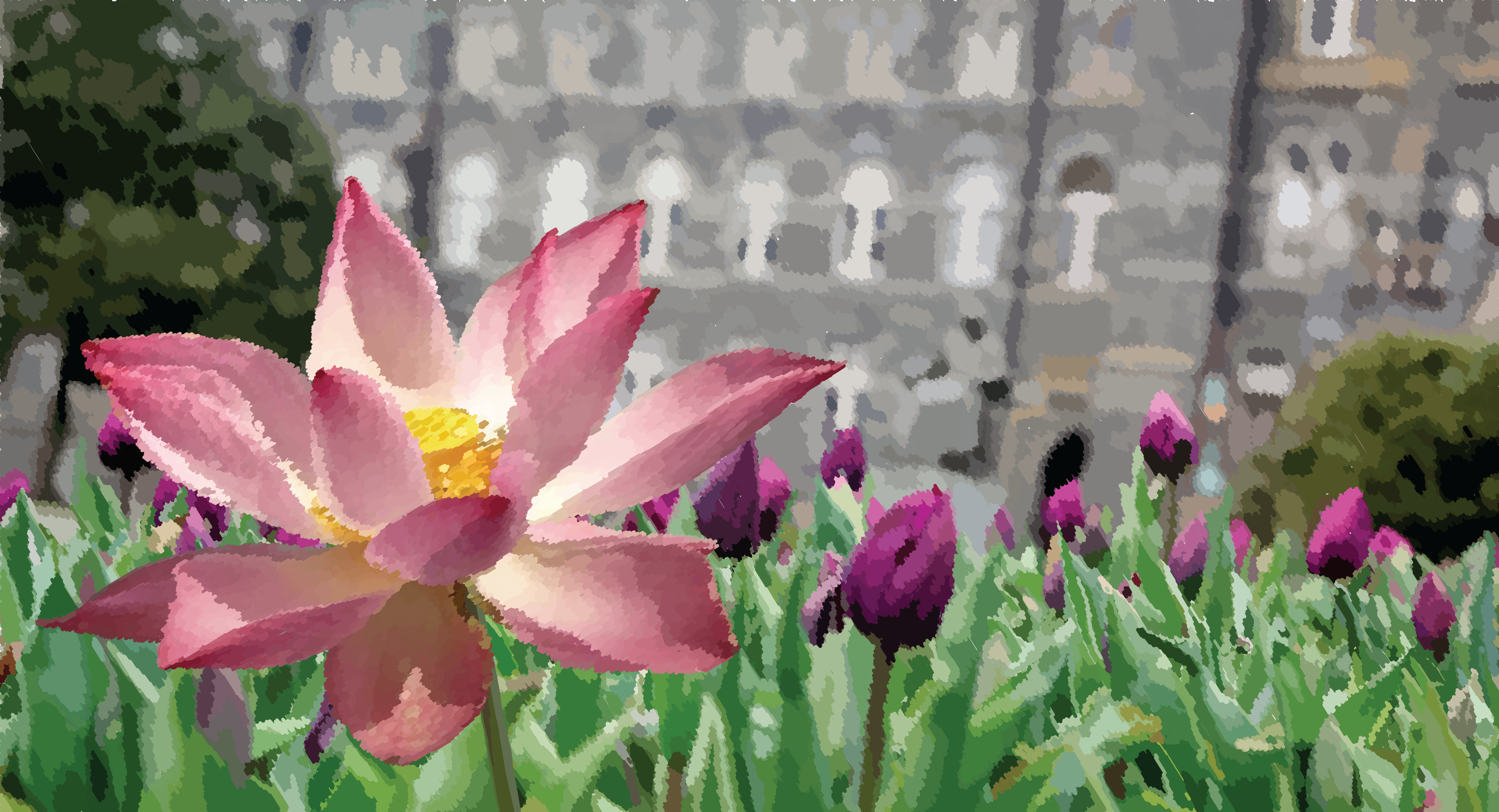My memories of the Jesuit Values Panel of NSO are strikingly clear. Sitting in McDonough Arena, I heard thoughtful presentations from various spiritual leaders on campus, like Imam Yahya Hendi and Rabbi Rachel Gartner. I heard inspiring words about how Georgetown is a “Community in Diversity” that encourages spiritual growth and exploration. But more and more, what I was told about Georgetown’s inclusivity detached from what I actually felt: left out. As other students flocked to their own religious leaders, I looked for the Director of Buddhist Life or the Buddhist chaplain to talk to, but found neither. It was sadly ironic that after I sat through an hour presentation that preached religious diversity, my religion was not represented.
Buddhism is the fourth largest religion in the world, with 488 million people practicing in the world today, yet there is no full-time Buddhist clergy on Georgetown’s campus. It is absolutely necessary for this to change. While the self-identifying Buddhist population on campus may be small, Georgetown has an obligation to establish a full-time Buddhist chaplaincy on campus out of respect for one of the world’s most prevalent religions, and in order to act in accord with our school’s pluralistic values.
Of the nine “Spirit of Georgetown” core values, two stand out in particular when it comes to the importance of having a Buddhist chaplain: Interreligious Understanding and Community in Diversity. Both values highlight the importance of having dialogue between religions, as it allows students to be both teachers and learners. I personally have greatly benefitted from having a Christian chaplain on my floor, and I am grateful for the opportunity to be exposed to the Christian faith. I’ve started to realize that the core messages in Christianity are similar to my own beliefs, and, at the end of the day we both believe in the power of spirituality and being a part of something bigger than ourselves. I’ve learned about various traditions and practices, including meditation, through a Christian lens. While I still have more to learn, I already feel a deeper connection and respect for my Christian peers. I love learning about other religions, but it is equally important for me to have the opportunity to teach and share experiences of my own faith.
As for Community in Diversity, according to the Campus Ministry web page, the Office of Campus Ministry supports Roman Catholic, Protestant, Orthodox Christian, Jewish, Muslim, and Hindu chaplaincies and worship services. While Georgetown has been forward-thinking and has made great strides to include more religious diversity, there is still more to be done. To achieve progress, Georgetown should take a proactive approach to the presence of Buddhism on campus.
Georgetown has given the explanation that there is no need for a Buddhist Chaplain because few students have self-identified as Buddhists. However, this response is missing the point. It’s not only about population; it’s about respect for a large world religion that should be represented on campus.
Buddhism is important for more than just its religious aspects. It can shed light on world issues that people may not otherwise be aware of, and it can help us better understand peace activism, such as that of the well-known Dalai Lama. Furthermore, Georgetown has a relatively large Asian student population. Most of them may not self-identify as Buddhists but they have likely followed Buddhist teachings through their lives since Buddhism has profoundly influenced all Asian cultures.
I am heartened that Georgetown has made efforts to create a space for Buddhists, which I learned while attending a Buddhist Interest Dinner put on by the Georgetown Buddhist Student Association (or BuSA) and Campus Ministry. The university deserves credit for making arrangements for occasional visits from a community Buddhist priest to campus and for supporting a student-run Buddhist group. This student group provides a community for Buddhist meditation practice, invites guest lecturers, and hosts film screenings. However these gestures are just a start. The university should have a Buddhist Chaplain along with the other religious chaplains and support meaningful efforts for the greater campus community to engage with it. Instead of offering limited activities for students who currently identify as Buddhist, Georgetown must provide a chaplain who can make Buddhism more visible and accessible to all students.
The presence of a Buddhist chaplain on campus would enrich the experience of all Georgetown students, regardless of whether they are Buddhist or even religious. Chaplains should serve as support systems, teachers, mentors and friends. Buddhist students deserve access to a chaplain as a mentor and a valuable source of support in moments of need, and other students deserve the opportunity to learn and grow in their own spiritual, or even just educational, experiences.
Georgetown has talked a good talk about fostering religious diversity and interreligious dialogue, and supporting each student on their individual spiritual journeys. If these claims are true, then I look forward to seeing the university’s newest addition to Campus Ministry.








BRAVO!!!